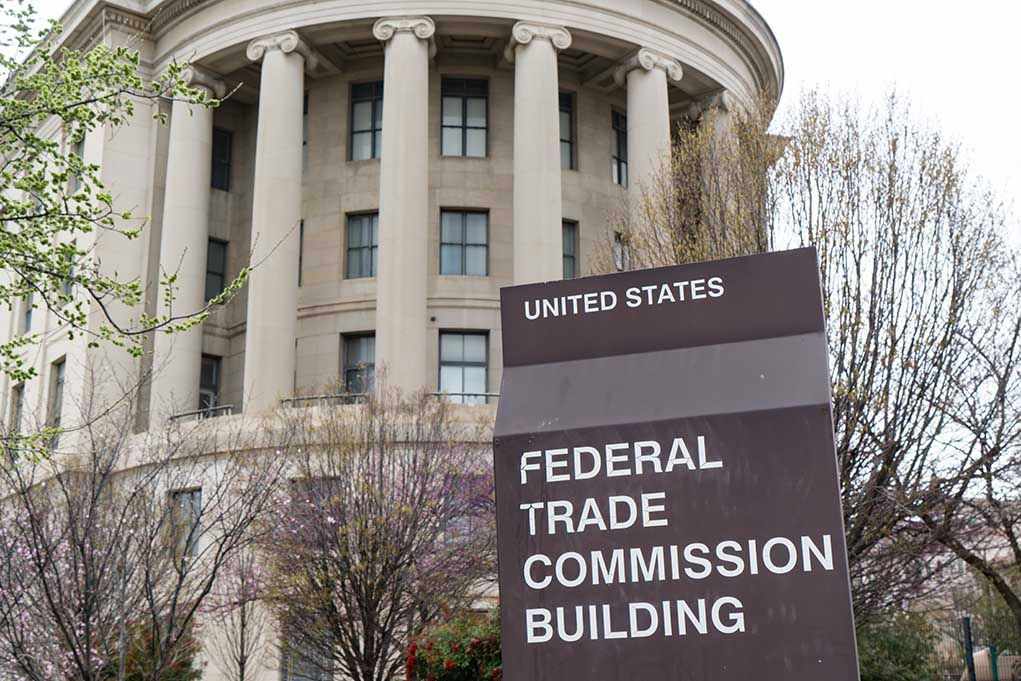
Big Tech faces renewed government scrutiny as the FTC launches a probe into Amazon and Google over secretive ad pricing, raising alarm bells for those concerned about unchecked corporate power and transparency.
Story Highlights
- The FTC is investigating Amazon and Google for allegedly misleading advertisers through opaque ad pricing and reserve price disclosure failures.
- The probe focuses on advertiser-facing practices, not consumer issues, heightening concerns about corporate accountability.
- The investigation comes amid broader efforts to rein in Big Tech’s power and demand transparency in digital advertising markets.
- Potential regulatory action may set new standards for the entire ad tech industry, impacting how online advertising operates.
FTC Targets Amazon and Google Over Ad Practices
The Federal Trade Commission has opened a formal investigation into Amazon and Google, examining whether these tech giants misled advertisers by failing to disclose the terms and true costs of digital ads on their platforms. The probe zeroes in on practices such as Amazon’s use of “reserve pricing”—the hidden minimum price allowed in ad auctions—and whether Google increased ad costs without informing its advertising customers. This action represents a significant escalation of regulatory scrutiny, specifically focused on the transparency and fairness of advertiser-facing practices at the heart of both companies’ lucrative business models.
Initial reports surfaced in early September 2025, with confirmation from multiple credible news outlets by September 12 that the FTC’s consumer protection unit is actively gathering information. Both Amazon and Google have declined to provide public comment, and the FTC has not issued detailed statements beyond confirming the existence of the investigation. The current phase involves information-gathering, with no enforcement actions or specific regulatory penalties announced yet. This silence from all parties is typical for ongoing federal probes, signaling the seriousness and complexity of the issues at stake.
Why Ad Transparency Matters: The Stakes for Advertisers and the Public
Google and Amazon dominate the digital advertising market, controlling significant portions of online ad spending through their search and shopping platforms. Advertisers have long voiced concerns about the complex and opaque nature of ad auctions, where they lack insight into how prices are set or increased. The FTC’s focus on “reserve pricing” and undisclosed cost hikes addresses these frustrations, as many businesses fear they are being forced to overpay without clear justification. This investigation sits within a larger context of ongoing antitrust lawsuits and regulatory efforts designed to challenge Big Tech’s control and demand greater transparency for all market participants.
The current probe is not the first time these companies have faced legal challenges. The Department of Justice has previously sued Google over monopolistic behavior in search and advertising technology, and the FTC has targeted Amazon for deceptive Prime enrollment practices. Globally, regulators are increasingly targeting digital advertising transparency, reflecting rising concern that Big Tech’s unchecked influence undermines fair competition and consumer trust. These actions have the potential to reshape not just the practices of Amazon and Google, but the wider digital advertising ecosystem.
Potential Outcomes and Broader Implications for the Digital Marketplace
In the short term, Amazon and Google face growing regulatory uncertainty that could disrupt their advertising businesses and force them to make internal changes. Advertisers may become more vocal in demanding clear, fair pricing or might reconsider their ad spending altogether. If the FTC’s investigation results in enforcement actions, it could compel both companies to overhaul their ad auction disclosures—potentially setting new transparency standards for the entire industry. The ripple effects could reach smaller ad tech firms, advertisers of all sizes, and even global regulators seeking to emulate U.S. reforms.
FTC probes Google, Amazon for allegedly misleading advertisers https://t.co/bIVTaTPkvM
— ConservativeLibrarian (@ConserLibrarian) September 12, 2025
Experts agree that a lack of transparency in ad auctions is a longstanding problem. Regulatory scrutiny is widely viewed as necessary to restore fair competition and protect advertisers from deceptive practices. However, some analysts warn that overly aggressive regulation could inadvertently stifle innovation or lead to unintended consequences for digital markets. For constitution-minded Americans, the real threat lies in the unchecked power of Big Tech and the need for robust oversight to ensure that free markets, fair competition, and individual liberties are protected from both corporate and governmental overreach.
Sources:
Transport Topics (Bloomberg reporting)

